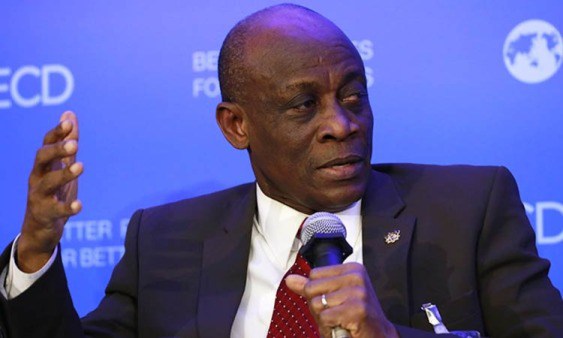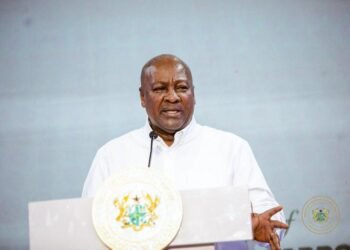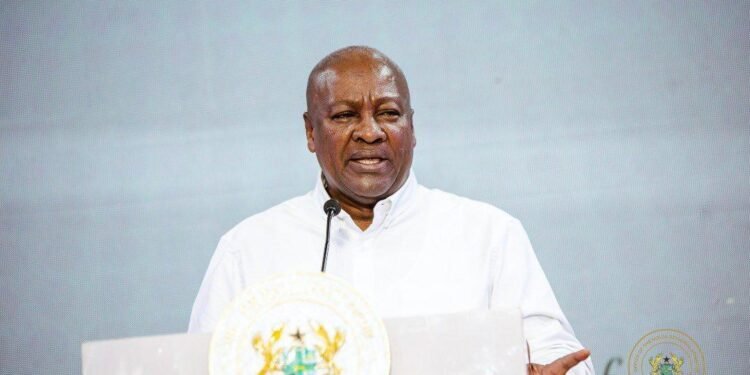Former finance minister, Seth Terkper, has revealed that the Ghana Revenue Authority can go ahead to implement the collection of the Value Added Tax (VAT) introduced by government.
According to him, the GRA has every right to carry out the directive once it has been approved and passed by parliament. He indicated that there are few instances where the minister may be given the discretion to choose the date. In such instances, Mr Terkper explained that if the law says he can do that by regulation, then he has to issue the regulation and go back to parliament for the legislation to be passed.
The former finance minister stated that when the finance minister issues regulations, the regulation is actually a subsidiary legislation which has to go back to parliament.
“The Ghana Revenue Authority can go ahead if the legislation that was passed by parliament takes immediate effect, which is why sometimes because we are dealing with tax issues parliament stays deep into the night in order that there wouldn’t be tax evasion and avoidance moves.
Where the law requires tax should come into effect at a certain date and specifies the date, then again, on that date, the GRA can go ahead and collect the tax…So, yes, once the law is passed in the case of taxes, then it becomes effective from immediately the President assents to the tax.”
Seth Terkper
Elaborating on the role of the finance minister in the passage of taxes, Mr Terkper noted that when the law requires the minister to issue a regulation, the regulation normally has to do with clarifications of certain matters or further expatiation of specific sections. He indicated that there is rarely actually talks about an effective date for implementing the tax.
“But if businesses have to prepare for the tax, then in that case, the law may require the minister to issue regulations to some of those things or require the minister to implement the tax at a future date and usually, legislators like the date to be specific…”
Seth Terkper
Double taxation by parliament
Commenting on concerns of double taxation among stakeholders with the implementation of 2.5% VAT by government, Mr Terkper highlighted that “the issue of double taxation is what we call tax-on-tax”. He recounted that the VAT was legislated many years back, it was pegged at 15% which was cancelled and saw the re-introduction rate fixed at 10%.
The former finance minister noted that in the year 2000, the VAT was increased to 12.5% and the amount was dedicated to the GETFUND.
“Then was an increase of 2.5% and the amount was dedicated to the National Health Insurance levy. In both cases, the VAT was taxed for a long time as though it was VAT, then the Ghana Infrastructure Fund came much later and that was a two and half percentage increase. Now, when you say it is collected as a VAT, the unique thing about the VAT is that, because VAT is a consumption tax, it is the consumer who pays, it is not the business.
But before the product becomes final, business inputs can be sold by one business to the other. If the tax is imposed on those inputs and nothing is done, you would have paid VAT on the inputs…”
Seth Terkper
It will be recalled that Finance Minister, Ken Ofori-Atta, announced an upward adjustment in Value Added Tax (VAT) by 2.5%.
The finance minister revealed that the increase in the rate forms part of the government’s seven-point agenda to revitalize the country’s economy. He stated that the move is intended “to directly support our roads and digitalization agenda”. Following this, the Minority in Parliament vowed to resist any attempt by the government to revise the rate of Value Added Tax (VAT) upwards in the 2023 budget.
Speaking on the matter, Member of Parliament for Asuogyaman, Thomas Ampem Nyarko, argued that such a move will further exacerbate the current hardship in the country.
READ ALSO: Ghanaians Should Expect More Scandals In 2023- Ablakwa






















